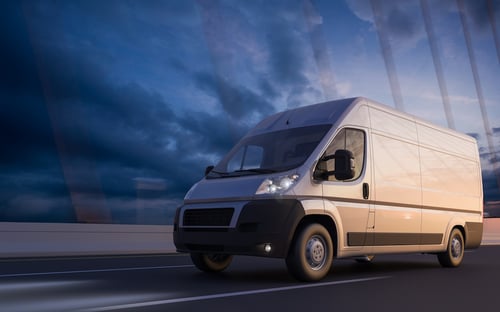If someone asked you to guess which type of vehicle sold an average of eight times faster than any other type of car in 2016, "commercial vans" would probably not be what you'd say first. Yet that is exactly the situation we find ourselves in, as the sales of commercial vans in the United States also topped 500,000 units for the first time last year. Industry experts agree that this is largely thanks to gains in the country's economy. As things continue to improve from an economic perspective, the demand for skilled labor increases - which increases the demand for work vans and other large commercial vehicles at the same time.
Regardless of the reasons, there are a number of fascinating trends in commercial vans that you should definitely be aware of moving forward.
Companies Are Struggling to Meet Demand
If you're having a hard time finding the right commercial van to fit your needs, the first thing you should know is that you're not alone. A number of companies including Ford and General Motors have indicated that these vans are so popular right now that they're essentially being sold as fast as they can be produced.
Ford, for example, took the impressive move of adding a third shift to its plant in Kansas City where its Transit full-size van is produced. General Motors took similar steps in Wixom, Missouri, where both the Chevrolet Express and the GMC Savana are manufactured.
Commercial Vans Are Actually Getting Smaller
While the sales of commercial vans are increasing all the time, it's interesting to note that the actual size of the vans is getting a bit smaller. Unibody vans which offer a slightly more compact definition of the term "full-size van" are the new norm and to that end, the Transit Connect is the leader of the pack. Though it was the first compact cargo van on the market when it first arrived in 2010, many other companies have followed suit - and have enjoyed similar gains as a result. This is largely due to two distinct factors - more affordable prices and better fuel economy.
Compact commercial vans can be purchased for much cheaper and, when you add in the amount of money you can conceivably save on the price of already low gasoline, it's seen as a wise investment for people looking to take advantage of any opportunity to improve their own bottom lines.
Gasoline is More Popular Than Diesel
Interestingly, representatives from Ford indicated that nearly 90% of their customers were choosing gasoline power in terms of commercial vans - both due to low purchase prices and the currently low fuel prices that people are enjoying across the country. While some customers are switching their fleets to diesel and saving tremendous amounts of money - for now gas-based commercial vans are the clear winner. If fuel prices do end up increasing across the country, however, diesel and other alternative fuels are expected to enjoy a resurgence of their own.
The Shape of Things to Come
Perhaps the most interesting thing to take away from all this is that the resurgence of commercial vans is a trend that shows no signs of slowing down anytime soon. Yaro Hetman, the brand manager for Ford's fleet of van and other commercial products, said that everything he's heard from speaking with customers directly is that the demand for efficient vehicles - both in terms of fuel economy and overall versatility - will continue in full force. He even indicated that many customers were switching from trucks to vans, something that they've tried to take full advantage of with the Transit and other model.






